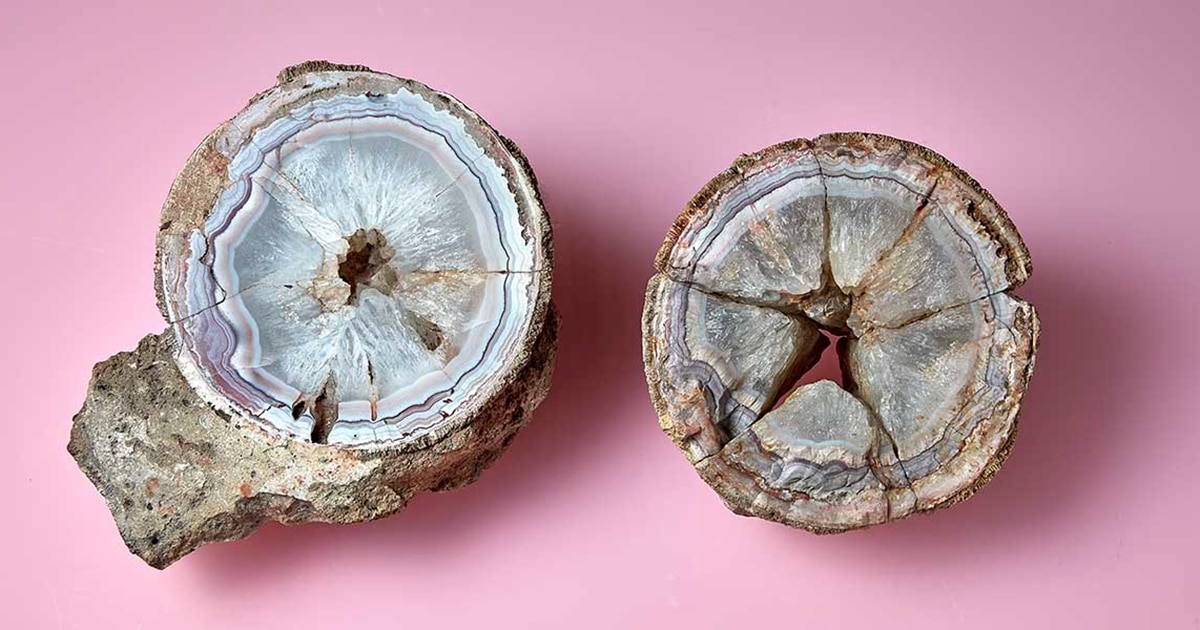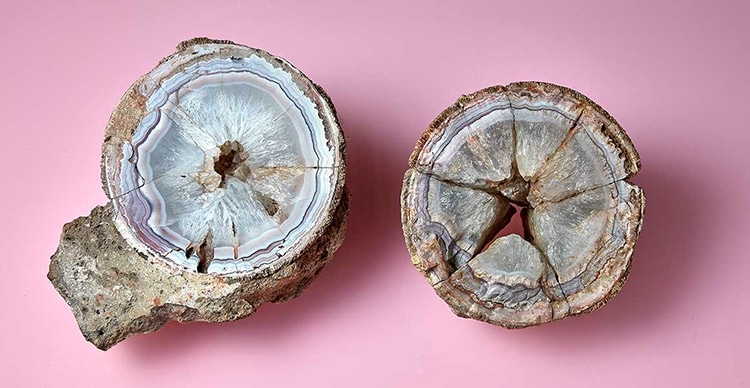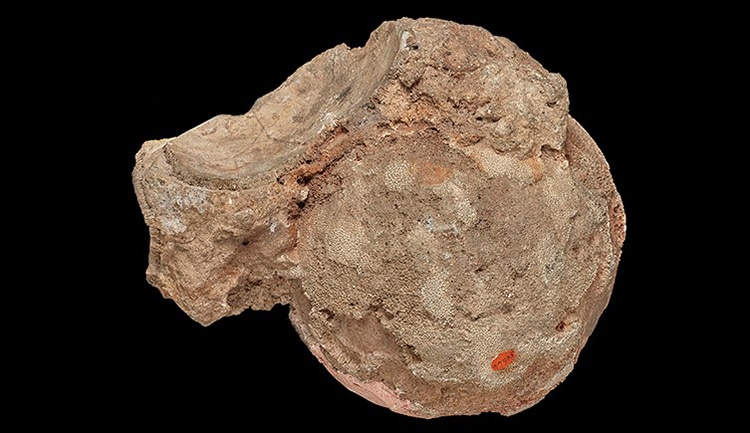
[ad_1]

Agate crystals evidently grew inside a titanosaur egg. (Picture: Natural Historical past Museum)
A attractive pink and white agate crystal has sat in the archives of London’s Organic Heritage Museum due to the fact 1883. In 2018, a minerals curator named Robin Hansen selected the really stone to screen at the institution. Various months later, Hansen encountered a comparable agate, which a supplier informed him was in fact an agatized dinosaur egg. Acknowledging what he may well have found out, Hansen and museum staff members have because verified the rock is in truth a dinosaur egg which has filled with agate crystal more than the course of tens of millions of a long time.
“While I was looking about the clearly show, a seller showed me an agatized dinosaur egg, which was spherical, experienced a slim rind, and darkish agate in the center,” Hansen reported in a assertion. “That was the lightbulb moment when I assumed: ‘Hang on a minute, that looks a lot like the one particular we’ve just put on exhibit in the Museum!’” Museum paleontologists Professor Paul Barrett and Dr. Susannah Maidment took a appear. They observed that the “rock” had an external texture that resembled that of a dinosaur egg. It was also the sizing (15 cm / 5.9 inches throughout) and spherical condition of a titanosaur egg. Titanosaurs had been a team of four-legged, extensive-necked dinosaurs who roamed throughout the environment in the Cretaceous period.
Even further tests with CT scans were being unhelpful because of to the dense rock materials. Nevertheless, pressed into the area are marks indicating the object lay subsequent to some others of equivalent dimension and form. These elements all trace at the shocking reality. On top of that, the object is considered to be about 67 million several years old. It was found in India by Charles Fraser among 1817 and 1843. India is prosperous in titanosaur fossils, even though other species of dinosaurs had been unrepresented on the historic, then-island landmass. Researchers are certain by the resemblance of the “agate” to a titanosaur egg, even nevertheless its 19th-century discoverers would not yet have regarded it as such.
So how did a fossilized dinosaur egg come to be loaded with agate crystals? Scientists suspect the titanosaur mom may possibly have laid her clutch of eggs on leading of warm volcanic soil for incubation, but a volcano may perhaps have blanketed the eggs just before they could hatch. Basalt rock would have fashioned all-around the egg shells, the content inside inevitably rotting away. According to the museum, from this incident of fate, “silica-rich h2o must have continuously percolated by means of the rock and the shell of the egg. This filled the void, making the banded agate specimen that was sooner or later dug up tens of millions of many years afterwards.” The stop final result is a astonishing, beautiful artifact that unites equally mineralogy and paleontology.
The Organic Background Museum has possessed a wonderful spherical agate for about a hundred years, only to just lately find it is in truth a fossilized titanosaur egg loaded with crystals.
The egg was probably fossilized by lava and filled slowly and gradually with crystals in excess of tens of millions of yrs.


An example of a titanosaur, in this circumstance a Ampelosaurus atacis. (Photograph: Wikimedia Commons, General public domain)
h/t: [IFL Science]
Similar Article content:
Scientists Explore the Oldest Peltoperleidus “Bony Fish” Fossil Ever in China
World’s Oldest Preserved Brain Uncovered in a 319 Million-Yr-Previous Fish Fossil
Paleontologists Find out Fossil of an Enormous 340-Pound Penguin in New Zealand
Fossil of Ancient Huge Sea Turtle the Dimension of a Rhino Discovered in Spain
[ad_2]
Resource website link







Leave a Reply